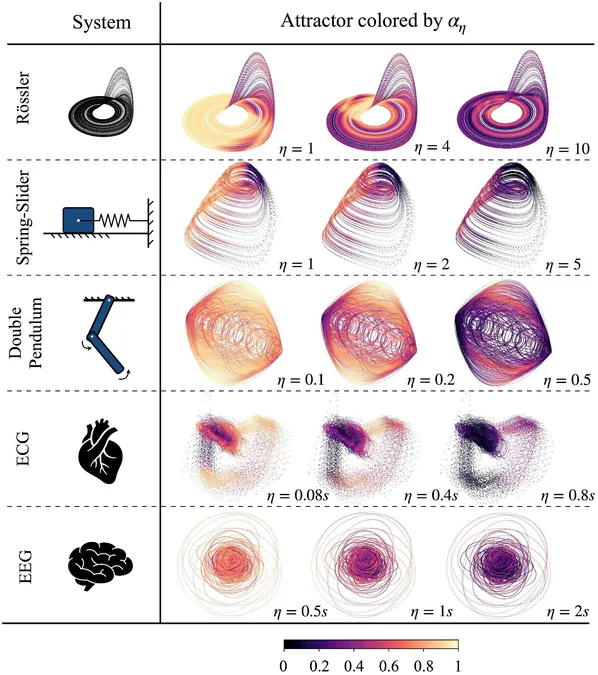
Unveiling the Sleep Struggles Tied to OCD, Tics, and ADHD: A Groundbreaking Study
2025-05-12
Author: Li
Connecting the Dots Between Sleep Disturbances and Mental Health Disorders
A recent study has uncovered startling links between increased sleep difficulties and conditions such as obsessive-compulsive spectrum disorders (OCSDs), chronic tic disorders (CTDs), and attention-deficit/hyperactivity disorder (ADHD). Published in the May issue of the Harvard Review of Psychiatry, the narrative review pinpoints disruptions in the cortico-striatal-thalamo-cortical (CSTC) pathway as a potential cause.
The Neurotransmitter Connection
The review, conducted by a team including Margaret D. Hall and medical experts from Massachusetts General Hospital, reveals that neurotransmitters like dopamine and GABA—vital to CSTC circuitry—are often dysregulated in individuals with these disorders. Gaining insight into how this dysregulation affects sleep could pave the way for more effective treatments.
A Closer Look at Sleep Disorders
The researchers meticulously combed through numerous studies, collecting data on various conditions recognized under the CSTC umbrella. This includes obsessive-compulsive disorder (OCD), body dysmorphic disorder (BDD), and chronic tic disorders such as Tourette syndrome. The findings indicate a worrying overlap: adults with CTDs or OCD frequently report objective sleep movement disorders, while similar trends are observed in children with OCD and ADHD.
The Bidirectional Complication of Sleep Issues and Mental Health
The evidence suggests a troubling cycle: poor sleep may exacerbate symptoms of OCSDs and other CSTC conditions. This bidirectional relationship indicates that inadequate sleep not only stems from these disorders but can also lead to structural changes in the brain that worsen symptoms—all of which encourages an urgent need for effective intervention.
Potential Treatment Approaches
The study outlines three potential strategies to tackle sleep disturbances in patients with CSTC conditions: 1) Treating the mental health condition itself, which may alleviate sleep issues; 2) Directly addressing sleep problems that could ease the symptoms of the mental health disorder; 3) Simultaneously treating both. However, the optimal path may vary significantly from person to person.
The Importance of Tailored Treatments for Children
Particular caution is warranted when treating children who are prescribed medication for CSTC conditions. The reviewers highlight the need for a balanced approach that weighs the potential long-term consequences of altered sleep architecture against the immediate risks of leaving mental health issues untreated. Identifying medications that improve core symptoms while preserving healthy sleep patterns is crucial.
The SSRIs Dilemma: A Double-Edged Sword?
Selective serotonin reuptake inhibitors (SSRIs), the go-to treatment for OCD and BDD, might inadvertently complicate matters by delaying REM sleep. Researchers point out that understanding the balance between the efficacy of SSRIs in treating symptoms and their impact on sleep architecture is vital.
A Call for Further Research
As awareness about the relationship between sleep and mental health disorders grows, the authors of the review call for more research to clarify whether sleep disturbances are a direct result of medications or an inherent issue stemming from the CSTC disorders themselves. This understanding could significantly influence treatment protocols and patient outcomes.



 Brasil (PT)
Brasil (PT)
 Canada (EN)
Canada (EN)
 Chile (ES)
Chile (ES)
 Česko (CS)
Česko (CS)
 대한민국 (KO)
대한민국 (KO)
 España (ES)
España (ES)
 France (FR)
France (FR)
 Hong Kong (EN)
Hong Kong (EN)
 Italia (IT)
Italia (IT)
 日本 (JA)
日本 (JA)
 Magyarország (HU)
Magyarország (HU)
 Norge (NO)
Norge (NO)
 Polska (PL)
Polska (PL)
 Schweiz (DE)
Schweiz (DE)
 Singapore (EN)
Singapore (EN)
 Sverige (SV)
Sverige (SV)
 Suomi (FI)
Suomi (FI)
 Türkiye (TR)
Türkiye (TR)
 الإمارات العربية المتحدة (AR)
الإمارات العربية المتحدة (AR)